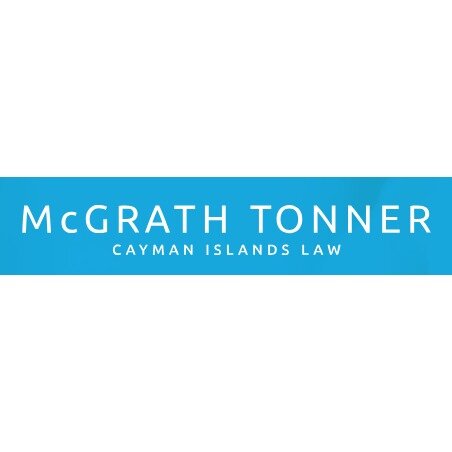Best Water Law Lawyers in George Town
Share your needs with us, get contacted by law firms.
Free. Takes 2 min.
List of the best lawyers in George Town, Cayman Islands
About Water Law in George Town, Cayman Islands
Water Law in George Town, Cayman Islands, focuses on the regulation, distribution, use, and protection of water resources within the jurisdiction. It covers the rights and responsibilities tied to surface water, groundwater, coastal waters, and the infrastructure that delivers water to residences and businesses. The law also establishes the framework for water quality, conservation measures, and the resolution of water-related disputes. These regulations help protect public health, preserve the natural environment, and manage the sustainable development of the Islands' growing population and tourism sector.
Why You May Need a Lawyer
There are several situations where legal expertise in Water Law becomes important. You may need a lawyer if you are facing disputes over water rights with neighbors or nearby businesses, are involved in a development project that may impact water resources, or require guidance through water supply agreements and related permits. Water quality concerns, reports of contamination, regulatory compliance issues, or difficulties securing access to municipal water services also often benefit from professional legal advice. Additionally, if you are affected by water-related environmental incidents or wish to challenge new regulations, consulting with a specialized lawyer can help protect your interests and ensure compliance with local laws.
Local Laws Overview
The regulation of water in George Town and the wider Cayman Islands is primarily governed by the Water Authority Law and its related regulations. The Water Authority, a statutory body, oversees the management, conservation, and development of water resources. Key aspects include the requirement for permits for water extraction, provisions to prevent and manage pollution, and rules governing the installation and maintenance of water infrastructure. The Utilities Regulation and Competition Office (OfReg) also plays a role in overseeing service standards for water utilities providers. Property owners, developers, and businesses must adhere to usage limits, obtain necessary approvals for drilling wells or laying pipes, and comply with standards related to wastewater management and discharge. Non-compliance may result in penalties or service interruptions.
Frequently Asked Questions
What is the Water Authority in the Cayman Islands?
The Water Authority is a statutory body responsible for regulating the supply, distribution, and treatment of water, as well as sewage services in the Cayman Islands. It enforces the Water Authority Law and oversees both public and private water systems.
Do I need permission to drill a well on my property?
Yes, individuals and businesses must obtain a license from the Water Authority before drilling any well on their property. This ensures that water extraction does not negatively impact the environment or other users.
Can I use rainwater harvesting systems?
Rainwater harvesting is allowed and often encouraged for water conservation. However, depending on the system's size and use, certain regulations may apply, especially for commercial properties.
What should I do if my water is contaminated?
Contact the Water Authority immediately to report the issue. You may have legal recourse if the contamination results from negligence or failure to comply with regulatory standards by a third party.
Are there restrictions on water usage for businesses or new developments?
Yes, businesses and new developments must comply with allocation limits, obtain permits for significant water use or infrastructural changes, and often submit water management plans for approval.
Who is responsible for the maintenance of water pipes on private property?
Property owners are generally responsible for maintaining pipes and plumbing within their property boundaries. The Water Authority or utility company maintains public mains up to your property line.
What happens if I am found using water illegally?
Illegal use of water, such as unlicensed extraction or tampering with water meters, can result in fines, prosecution, and suspension of water service.
Is wastewater management regulated?
Yes, all wastewater treatment and discharge must comply with standards set out by the Water Authority. Permits and inspections are required for septic systems and wastewater treatment plants.
Can disputes over shared water sources be resolved legally?
Yes, if negotiation fails, affected parties can seek legal resolution through mediation, the Water Authority, or the local courts, often with the help of a lawyer specializing in Water Law.
How do I connect my property to the municipal water supply?
Contact the Water Authority or the designated utility company to apply for a connection. You may need to provide proof of ownership, comply with technical requirements, and pay applicable fees.
Additional Resources
If you need more information or assistance related to Water Law in George Town, Cayman Islands, the following resources can be helpful:
- Water Authority Cayman: Provides guidance on regulatory requirements, permits, and services.
- Utilities Regulation and Competition Office (OfReg): Offers oversight of public utilities including water services.
- Department of Environment: Advises on environmental protections linked to water resources.
- Local law firms specializing in Water and Environmental Law.
- Community legal clinics for general advice and referrals.
Next Steps
If you require legal assistance in Water Law matters in George Town, Cayman Islands, start by gathering all relevant documentation such as permits, correspondence, and property records. Clearly outline your questions or the issue you are facing. Contact a qualified lawyer or legal advisor with experience in Water Law. You may also approach the Water Authority directly for initial inquiries or clarification on regulatory requirements. Acting promptly can help protect your rights and ensure compliance with local laws.
Lawzana helps you find the best lawyers and law firms in George Town through a curated and pre-screened list of qualified legal professionals. Our platform offers rankings and detailed profiles of attorneys and law firms, allowing you to compare based on practice areas, including Water Law, experience, and client feedback.
Each profile includes a description of the firm's areas of practice, client reviews, team members and partners, year of establishment, spoken languages, office locations, contact information, social media presence, and any published articles or resources. Most firms on our platform speak English and are experienced in both local and international legal matters.
Get a quote from top-rated law firms in George Town, Cayman Islands — quickly, securely, and without unnecessary hassle.
Disclaimer:
The information provided on this page is for general informational purposes only and does not constitute legal advice. While we strive to ensure the accuracy and relevance of the content, legal information may change over time, and interpretations of the law can vary. You should always consult with a qualified legal professional for advice specific to your situation.
We disclaim all liability for actions taken or not taken based on the content of this page. If you believe any information is incorrect or outdated, please contact us, and we will review and update it where appropriate.

















